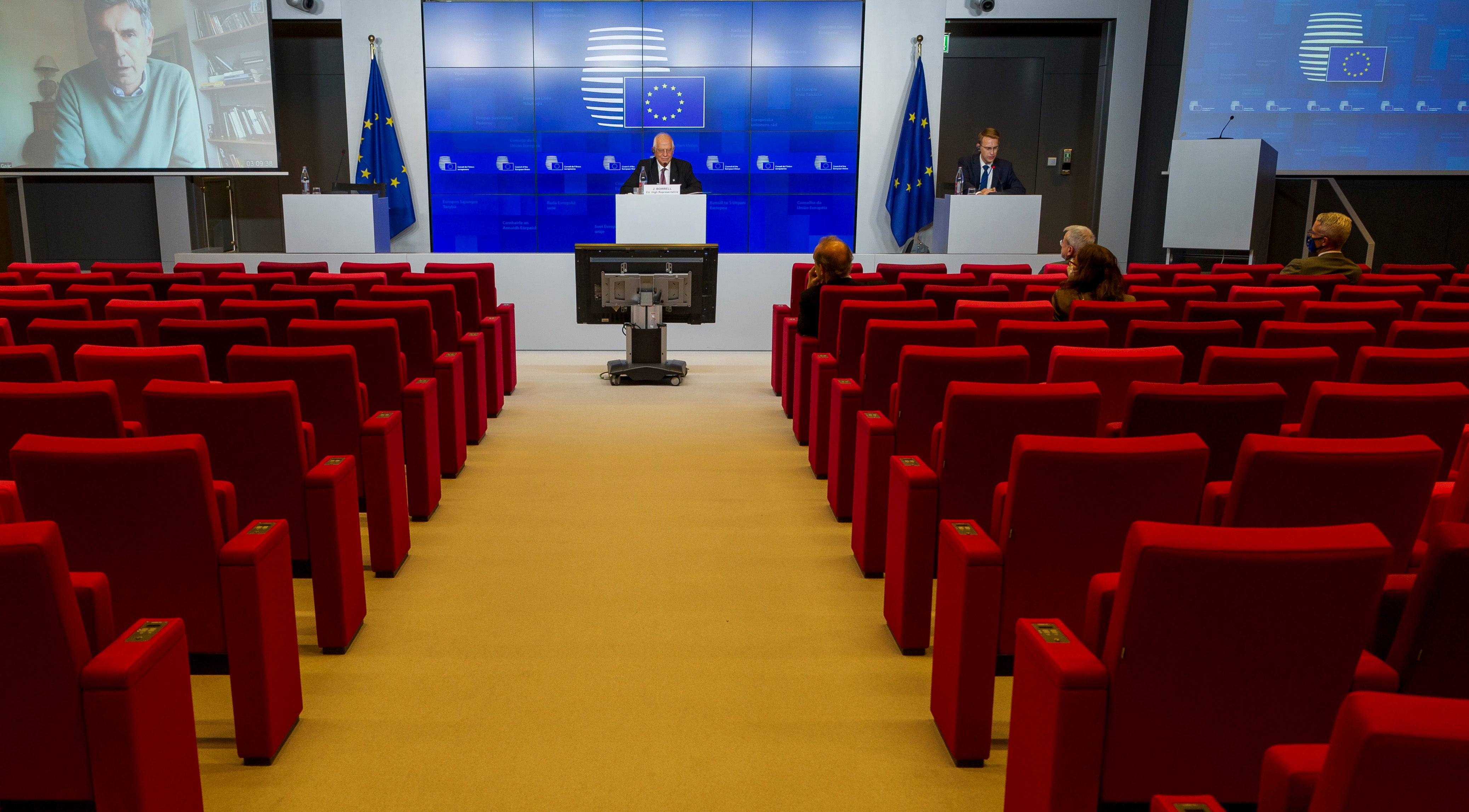EU slaps sanctions on 2 Russians over Germany cyberattack
The European Union has imposed sanctions on two Russian officials and part of Russia’s GRU military intelligence agency over a cyberattack against the German parliament in 2015

The European Union on Thursday imposed sanctions on two Russian officials and part of Russia’s GRU military intelligence agency over a cyberattack against the German parliament in 2015.
EU headquarters said in a statement that travel bans and asset freezes have been imposed on the two men: Igor Kostyukov, head of the Main Directorate of the General Staff of the Russian Armed Forces, and Dmitry Badin, a military intelligence officer.
The EU said that Badin, who is also being sought by U.S. authorities, was part of a team that launched the attacks on the Bundestag.
“This cyber-attack targeted the parliament’s information system and affected its operation for several days. A significant amount of data was stolen and the email accounts of several MPs as well as of Chancellor Angela Merkel were affected,” it said.
The part of the intelligence agency targeted is known as “military unit 26165,” or more commonly by monikers like APT28, Fancy Bear, Pawn Storm and Strontium. The EU said it “is responsible for cyber-attacks with a significant effect constituting an external threat to the Union or its Member States.”
The same unit stands accused of trying to hack into the Wi-Fi network of the Organization for the Prohibition of Chemical Weapons, based in the Netherlands, in 2018.
The sanctions were imposed under a set of measures designed to “prevent, discourage, deter and respond to continuing and increasing malicious behavior in cyberspace.” EU citizens and organizations are banned from making funds available to those listed.
A total of eight people and four organizations now appear on the list.
Russian officials have repeatedly denied any involvement by Moscow in the hacking attack. They have similarly dismissed charges of Russian meddling in the 2016 U.S. presidential election and alleged cyberattacks on other Western nations and institutions.
Diplomatic ties between Germany and Russia are already tense, following the brazen killing of a Georgian man on the streets of Berlin last year. Prosecutors have suggested the hit was ordered either by Moscow or authorities in the Russian republic of Chechnya.
Bookmark popover
Removed from bookmarks